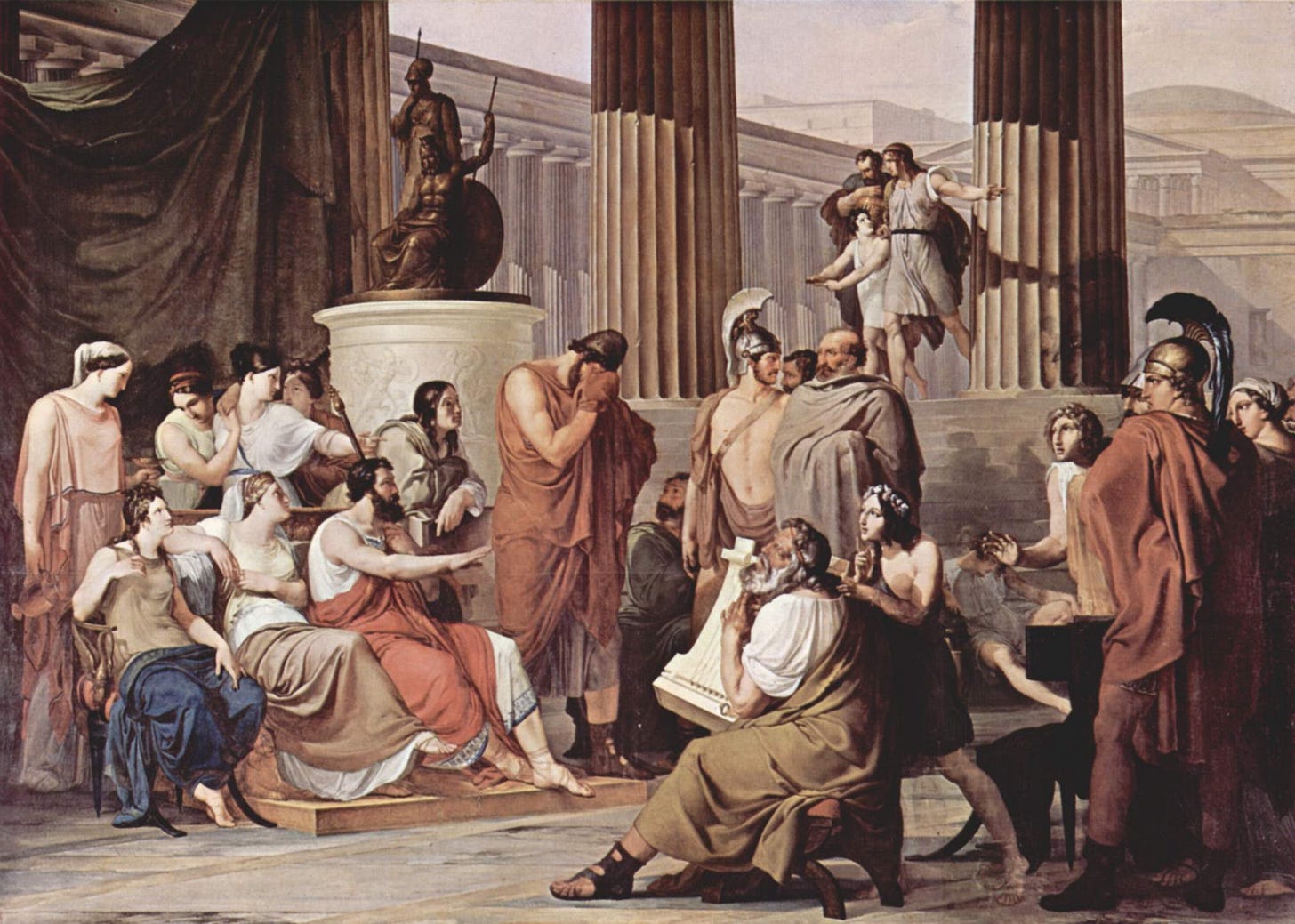Featured Podcast Episode - The Trojan War: From Oral Tradition to Canon
Issue 15
In This Episode
In this very first episode, host, Petros Koutoupis, discusses the history of the Trojan War, oral tradition and the methods by which the narratives resulted in the version of the Iliad and Odyssey we read today.
You can listen to this episode on:
Glossary
Ahhiyawa - The Hittite rendering of Homer’s Achaeans (i.e. the Mycenaean Greeks).
Anatolia - The region that is Turkey today.
Assuwa - An ancient name for South-Western Anatolian. Also, an ancient form of the word Asia.
BCE - Before the Common Era, the equivalent of B.C.
Cuneiform - An ancient form of wedge-shaped writing, originating from Mesopotamia and utilized throughout the ancient Near East.
Hesiod - Contemporary to Homer and lived roughly at the same time period during the 8th century BCE. Author of the Theogony and the Works and Days.
Canaan - The region that is the Levant and what is Israel and Syria today.
Hittite - An ancient civilization and empire that controlled most of the Anatolian mainland.
Late Bronze Age - A historical period defining the end of the Bronze Age in the Eastern Mediterranean that began at c. 1500 BCE and ended c. 1200 BCE.
Linear B - An adaptation from the Minoan Linear A, it is made up of hundreds of signs that represent syllabic, ideographic and semantic values that represent an ancient dialect of the Greek language.
Mycenaean - A phase or period of the Bronze Age Greece, spanning from approximately 1600-1100 BCE.
Recommended Books
1177 B.C. (Revised and Updated): The Year Civilization Collapsed
Eric H. Cline
In 1177 B.C., marauding groups known only as the "Sea Peoples" invaded Egypt. The pharaoh's army and navy managed to defeat them, but the victory so weakened Egypt that it soon slid into decline, as did most of the surrounding civilizations. After centuries of brilliance, the civilized world of the Bronze Age came to an abrupt and cataclysmic end. Kingdoms fell like dominoes over the course of just a few decades. No more Minoans or Mycenaeans. No more Trojans, Hittites, or Babylonians. The thriving economy and cultures of the late second millennium B.C., which had stretched from Greece to Egypt and Mesopotamia, suddenly ceased to exist, along with writing systems, technology, and monumental architecture. But the Sea Peoples alone could not have caused such widespread breakdown. How did it happen?
In this major new account of the causes of this "First Dark Ages," Eric Cline tells the gripping story of how the end was brought about by multiple interconnected failures, ranging from invasion and revolt to earthquakes, drought, and the cutting of international trade routes. Bringing to life the vibrant multicultural world of these great civilizations, he draws a sweeping panorama of the empires and globalized peoples of the Late Bronze Age and shows that it was their very interdependence that hastened their dramatic collapse and ushered in a dark age that lasted centuries.
Visit Amazon to view the product.





